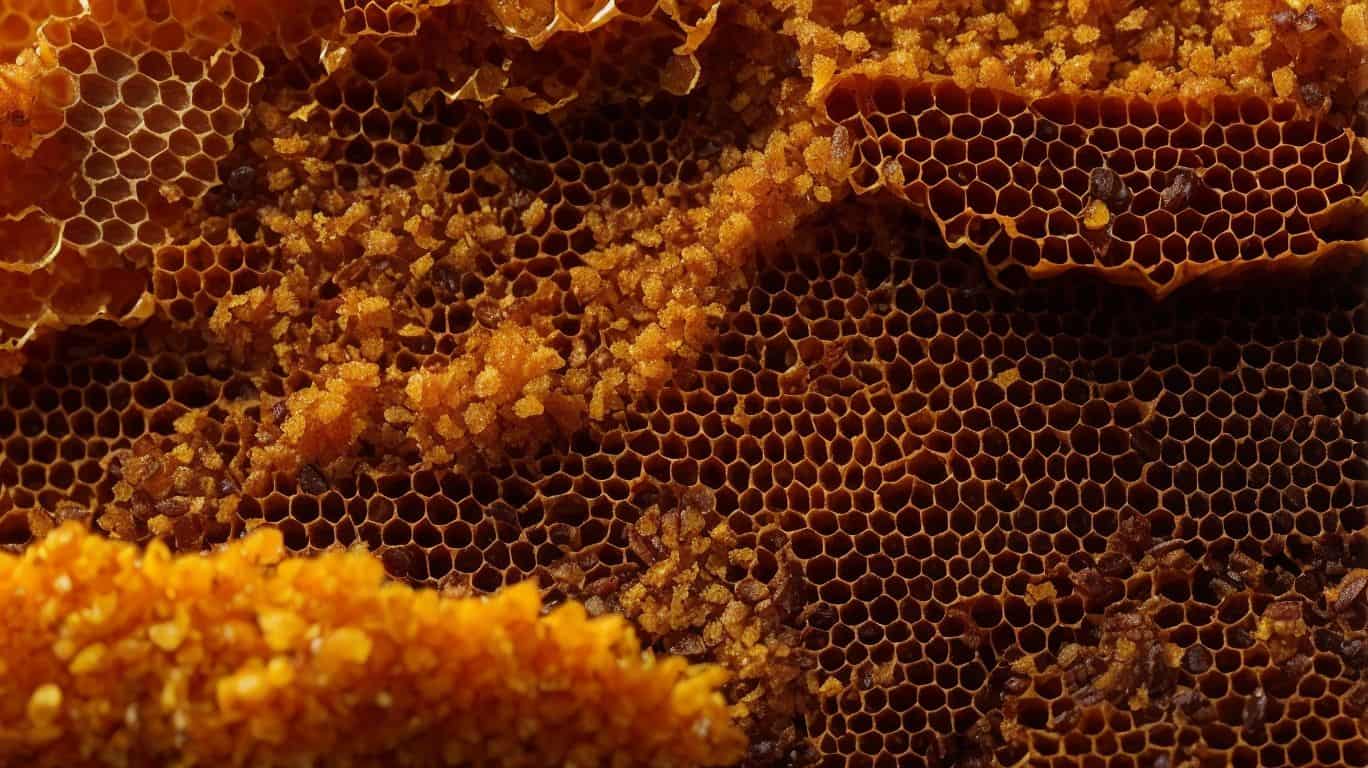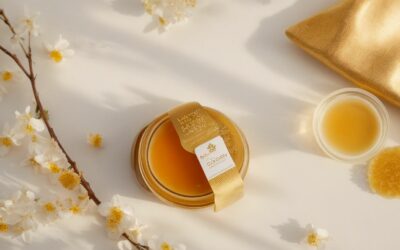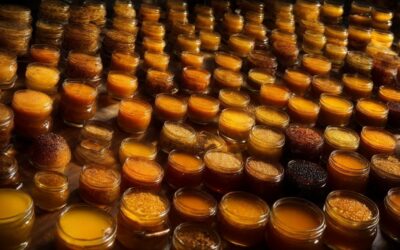Are you tired of constantly searching for natural remedies for your health concerns? Look no further, because monofloral manuka honey may be the answer you’ve been looking for.
In this article, we will explore what monofloral manuka honey is and why it has become increasingly popular in the wellness world. As more people turn to natural solutions, understanding the benefits and properties of monofloral manuka honey is essential.
What is Monofloral Manuka Honey?
- What is Monofloral Manuka Honey?
- How is Monofloral Manuka Honey Different from Other Honey?
- What is the UMF Rating System for Monofloral Manuka Honey?
- What Are the Benefits of Monofloral Manuka Honey?
- How Can Monofloral Manuka Honey be Used?
- What Are the Potential Side Effects of Monofloral Manuka Honey?
- How do you choose and store monofloral manuka honey?
- Frequently Asked Questions
Monofloral Manuka honey is a sought-after type of honey produced by bees that primarily feed on the nectar of the Manuka plant. Its unique properties and health benefits make it highly desirable.
This honey is known for its antibacterial, antiviral, and anti-inflammatory properties, making it an effective natural remedy for various ailments. Its distinct taste and texture are also notable characteristics.
To be classified as monofloral, the honey must contain a high percentage of Manuka nectar, typically 70% or more.
How is Monofloral Manuka Honey Different from Other Honey?
Monofloral Manuka honey stands out from other honey varieties due to its unique characteristics and stringent production process.
This special honey comes from the nectar of the Manuka flower, primarily found in New Zealand. Unlike other types of honey, Monofloral Manuka honey is made almost exclusively from Manuka flower nectar, resulting in a distinct and delicious flavor profile.
It is also known for its exceptional antibacterial properties, attributed to high levels of methylglyoxal (MGO) present in the honey.
To ensure quality and authenticity, Monofloral Manuka honey is graded based on its MGO content, with higher levels indicating superior quality.
It’s no wonder that in the late nineteenth century, beekeepers in New Zealand discovered the medicinal properties of this honey, making it a sought-after product worldwide today.
What Makes Monofloral Manuka Honey Unique?
Monofloral Manuka honey stands out due to its origin from the nectar of Manuka flowers. These flowers can only be found in New Zealand, making the honey truly unique.
The Manuka plant contains a compound called methylglyoxal (MGO) that gives the honey its exceptional antibacterial properties, setting it apart from other types of honey.
Furthermore, Monofloral Manuka honey undergoes strict testing and is assigned a UMF (Unique Manuka Factor) rating to ensure its quality and authenticity.
With its rarity and proven health benefits, have you considered incorporating this unique honey into your daily routine?
What is the UMF Rating System for Monofloral Manuka Honey?
The UMF (Unique Manuka Factor) rating system is utilized to gauge the strength and excellence of monofloral Manuka honey. It assesses the presence of specific compounds that contribute to its unique health benefits.
The UMF rating ranges from 5+ to 20+, with higher ratings indicating a higher concentration of these beneficial compounds. This rating system aids consumers in identifying and selecting honey with the desired therapeutic properties.
It is crucial to seek out the UMF certification on the product label to ensure the authenticity and efficacy of the honey.
What Does the UMF Rating Mean?
The UMF rating system for monofloral Manuka honey indicates the level of unique Manuka factor present in the honey. Ranging from 5+ to 20+, the UMF rating signifies the concentration of beneficial compounds within the honey.
This rating reflects the potency and effectiveness of the honey’s antibacterial properties and therapeutic benefits. It also serves as a standardized method for consumers to evaluate and compare different brands of Manuka honey.
When purchasing monofloral Manuka honey, understanding the UMF rating is crucial to determining the quality and authenticity of the product.
What Are the Benefits of Monofloral Manuka Honey?
Monofloral Manuka Honey is a type of honey produced from the nectar of the Manuka bush in New Zealand. This honey has gained popularity for its unique and powerful health benefits.
In this section, we will explore the various benefits of Monofloral Manuka Honey and how it can positively impact our health.
From its antibacterial properties to its ability to promote wound healing, we will dive into the many benefits that make this honey so special.
1. Antibacterial Properties
Monofloral Manuka honey is highly sought-after for its notable antibacterial properties, making it a popular natural remedy. To fully harness its benefits, follow these steps:
- Choose a reputable brand with a high UMF rating to ensure quality.
- Incorporate a teaspoonful into your daily routine, either on its own or mixed with warm water.
- Apply topically to wounds or skin infections to take advantage of its antibacterial and wound-healing properties.
- Use it as a natural sweetener in drinks, smoothies, or baking recipes.
Manuka honey has been used for centuries by the indigenous Maori people in New Zealand, known for its remarkable medicinal properties. Its antibacterial powers have been recognized by researchers, leading to its popularity worldwide.
2. Wound Healing
When it comes to wound healing, using monofloral Manuka honey can offer several benefits. Here are the steps to effectively use it for wound healing:
- Clean the wound gently with mild soap and water.
- Apply a thin layer of monofloral Manuka honey directly to the wound.
- Cover the wound with a sterile bandage or dressing to protect it.
- Change the dressing and reapply the honey daily or as directed by a healthcare professional.
- Monitor the wound for signs of infection or slow healing.
- Continue using monofloral Manuka honey until the wound is fully healed.
The antibacterial properties of monofloral Manuka honey can help prevent infection and promote faster healing.
However, it’s important to consult a healthcare professional for proper wound care and to ensure its suitability for your specific situation.
3. Digestive Health
Digestive health is one of the benefits of consuming monofloral manuka honey. Here are some steps to incorporate it into your routine:
- Start with a small amount: Begin by consuming a teaspoon of monofloral manuka honey daily.
- Increase intake gradually: Slowly increase the amount to two teaspoons per day to allow your body to adjust.
- Take it before meals: Consume the honey 30 minutes before meals to support your digestive health.
- Mix it with warm water or tea: Dissolve the honey in warm water or add it to herbal tea for added digestive benefits.
- Use it as a natural sweetener: Replace refined sugar with monofloral manuka honey in your recipes for a healthier alternative.
Remember to consult a healthcare professional before making any significant changes to your diet for personalized advice.
4. Oral Health
Maintaining good oral health is crucial, and incorporating monofloral Manuka honey into your routine can be beneficial. Here are some steps to consider:
- Choose a reputable brand like Wedderspoon, which offers high-quality monofloral Manuka honey.
- Consume a small amount of honey daily, either on its own or by adding it to warm water or herbal tea.
- Allow the honey to coat your mouth and teeth for a few minutes to maximize its benefits.
- Rinse your mouth with water afterward to remove any residual sugars.
- Brush and floss regularly to maintain good oral hygiene.
- Consult with a dentist if you have specific dental concerns or conditions.
How Can Monofloral Manuka Honey be Used?
While most people are familiar with the sweet and delicious taste of honey, not many may know about the unique properties of monofloral manuka honey.
This type of honey, derived from the nectar of the manuka plant, has gained popularity in recent years due to its potential health benefits.
In this section, we will discuss how monofloral manuka honey can be used, including as a sweetener, topical treatment, and supplement.
Each use offers its own set of advantages and we will explore them in detail.
1. As a Sweetener
Using monofloral Manuka honey as a natural sweetener can not only add a unique flavor to your food and drinks, but also provide potential health benefits. To effectively use it, follow these steps:
- Replace traditional sweeteners like sugar or artificial sweeteners with monofloral Manuka honey.
- Start by using a small amount and gradually adjust to your desired level of sweetness.
- Stir the honey into hot or cold beverages like tea, coffee, or smoothies.
- Drizzle it over pancakes, waffles, or yogurt for a natural sweetener.
- Use it in baking recipes as a substitute for sugar, adjusting the recipe to accommodate the liquid content.
- Store the honey in a cool and dry place, away from direct sunlight to maintain its quality and freshness.
Enjoy the unique flavor and potential health benefits of monofloral Manuka honey as a natural sweetener in your everyday life.
2. As a Topical Treatment
To use monofloral Manuka honey as a topical treatment, follow these steps:
- Cleanse the affected area with mild soap and warm water
- Gently pat dry the area
- Apply a thin layer of monofloral Manuka honey directly onto the skin as a topical treatment
- Cover the area with a sterile bandage or dressing
- Leave it on for several hours or overnight
- Rinse off the honey and reapply as needed
Remember, monofloral Manuka honey is known for its antibacterial and wound-healing properties, making it an effective treatment for cuts, burns, and skin infections.
However, if you experience any adverse reactions or allergies, discontinue use and consult a healthcare professional.
3. As a Supplement
Monofloral Manuka honey can be used as a supplement to promote overall health and well-being. Here are some steps to consider when incorporating it into your routine:
- Consult with a healthcare professional to determine the appropriate dosage.
- Purchase high-quality, UMF-certified Monofloral Manuka honey.
- Start with a small amount to assess tolerance and potential allergic reactions.
- Consider taking it on an empty stomach for better absorption.
- Use a spoon or mix it with warm water to consume it directly.
- Alternatively, add it to tea, smoothies, or yogurt for a delicious and nutritious boost.
- Store it in a cool, dry place away from direct sunlight to maintain its quality.
- As a supplement, Monofloral Manuka honey can provide a beneficial boost to your overall health and well-being.
What Are the Potential Side Effects of Monofloral Manuka Honey?
While monofloral manuka honey has gained popularity for its potential health benefits, it is important to also consider the potential side effects associated with its consumption.
In this section, we will discuss the possible allergic reactions that can occur, as well as the risk of hyperglycemia, and how monofloral manuka honey can interfere with certain medications.
By being aware of these potential side effects, we can make informed decisions about incorporating this honey into our diets.
1. Allergic Reactions
Allergic reactions to monofloral manuka honey are rare but can occur in individuals with a sensitivity to honey or bee products. If you experience an allergic reaction, follow these steps:
- Stop consuming the honey immediately.
- Seek medical attention if symptoms worsen or if you have difficulty breathing or swelling.
- Inform your healthcare provider about your allergy to honey or bee products.
- Avoid consuming any form of honey or bee products in the future to prevent future allergic reactions.
In ancient Egypt, honey was used for medicinal purposes, including treating wounds and infections. The healing properties of honey are still recognized today, making it a popular natural remedy.
2. Hyperglycemia
Hyperglycemia is a potential side effect of consuming monofloral Manuka honey, especially for individuals with diabetes or those prone to high blood sugar levels. This is due to the natural sugars present in honey.
It is important to monitor blood sugar levels and consume honey in moderation to avoid spikes in glucose levels. For those with diabetes, it is recommended to consult with a healthcare professional before incorporating monofloral Manuka honey into their diet.
In a similar experience, a true story: My friend, who has diabetes, decided to try monofloral Manuka honey after hearing about its numerous health benefits. However, she noticed a rise in her blood sugar levels after consuming it regularly.
She learned the importance of moderation and now enjoys the honey in smaller quantities without affecting her glucose control.
3. Interference with Medications
Interference with medications is a potential side effect when consuming monofloral manuka honey. To minimize any negative effects, it is important to be cautious and follow these steps:
- Consult with a healthcare professional before incorporating monofloral manuka honey into your diet if you are taking any medications.
- Inform your healthcare provider about any medications you are currently taking, including over-the-counter drugs and supplements.
- Discuss potential interactions between medications and monofloral manuka honey with your healthcare provider.
- Follow the recommended dosage and usage instructions provided by your healthcare professional.
- Monitor your body’s response to the combination of medications and honey, and report any adverse effects to your healthcare provider.
How do you choose and store monofloral manuka honey?
When selecting and storing monofloral Manuka honey, it is important to pay attention to its quality, storage conditions, and authenticity. Follow these steps to ensure the best results:
- Always check for UMF certification to ensure the authenticity of the honey.
- Look for a higher UMF rating for increased potency and effectiveness.
- Consider the MGO rating for additional antibacterial benefits.
- Store the honey in a cool, dry place away from direct sunlight.
- Avoid exposing the honey to heat or moisture to prevent degradation.
- Keep the honey tightly sealed to maintain its freshness.
Monofloral Manuka honey has been used by the indigenous Māori people of New Zealand for centuries due to its medicinal properties.
It gained international recognition in the late nineteenth century and has since become a highly sought-after ingredient in natural remedies and skincare products.
Its unique properties and limited production make it a valuable and precious resource.
Frequently Asked Questions
What is Monofloral Manuka Honey and Why Does it Matter?
Monofloral Manuka honey is a type of honey that is made primarily from the nectar of the Manuka bush, a native plant in New Zealand. The best manuka honey has, which is monofloral been found to have unique medicinal and therapeutic properties.
How is Monofloral Manuka Honey Different from Regular Honey?
Monofloral Manuka honey is different from regular honey because it is made from the nectar of only one type of plant, the Manuka bush. Multifloral honey is usually made from a mix of nectar from different types of plants.
What Makes Monofloral Manuka Honey Special?
Monofloral Manuka honey contains a compound called Methylglyoxal (MGO), which has been found to have antibacterial and anti-inflammatory properties. This makes it unique and highly sought after for its potential health benefits.
How is Monofloral Manuka Honey Rated and Graded?
Monofloral Manuka honey is rated and graded based on its MGO level, which indicates the level of antibacterial activity. The higher the MGO level, the higher the rating and grade of the honey.
Why is the Monofloral Manuka Honey Industry Regulated?
The Monofloral Manuka honey industry is regulated to protect the authenticity and quality of the honey. This ensures that consumers are getting genuine Monofloral Manuka honey with the promised health benefits.
How Should Monofloral Manuka Honey be Stored and Consumed?
Monofloral Manuka honey should be stored in a cool, dry place away from direct sunlight and heat. It can be consumed on its own, added to food or beverages, or used in home remedies. It is not recommended for children under the age of 12 months.
I’m a Manuka honey enthusiast and creator of Manuka Honey Organic, a blog where I share my journey with authentic Manuka honey from New Zealand. I want everyone to learn about the healing powers of Manuka honey.





